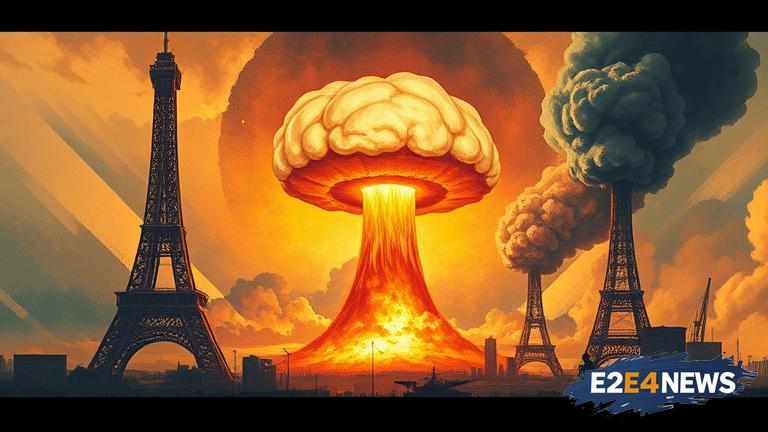The devastating atomic bombing of Hiroshima 80 years ago served as a stark reminder of the catastrophic consequences of nuclear warfare. Today, the threat of nuclear conflict looms large, with the proliferation of nuclear weapons and technology posing a significant risk to global security and stability. The international community has long grappled with the challenges of nuclear disarmament and non-proliferation, but the rise of new nuclear-armed states and the modernization of existing arsenals have heightened concerns. The Treaty on the Non-Proliferation of Nuclear Weapons (NPT), signed by over 190 countries, aims to prevent the spread of nuclear weapons and promote disarmament. However, the treaty’s effectiveness has been hindered by the lack of progress on disarmament and the emergence of new nuclear-armed states. The United States, Russia, and China are among the countries with the largest nuclear arsenals, and their modernization efforts have sparked concerns about a new nuclear arms race. The threat of nuclear terrorism also remains a pressing concern, with extremist groups seeking to acquire nuclear materials and technology. The Fukushima Daiichi nuclear disaster in 2011 highlighted the risks associated with nuclear power and the need for robust safety measures. The use of nuclear energy for peaceful purposes is a contentious issue, with some arguing that it is a vital source of clean energy, while others raise concerns about the risks of accidents and proliferation. The International Atomic Energy Agency (IAEA) plays a crucial role in promoting nuclear safety and security, but its efforts are often hindered by limited resources and political tensions. The Middle East is a region of particular concern, with Iran’s nuclear program and Israel’s suspected nuclear arsenal contributing to regional instability. The Korean Peninsula is another flashpoint, with North Korea’s nuclear tests and ballistic missile launches sparking international condemnation. The United Nations has called for a comprehensive ban on nuclear weapons, but the proposal has been met with resistance from nuclear-armed states. The humanitarian consequences of nuclear conflict would be catastrophic, with millions of people at risk of death, injury, and displacement. The economic costs of a nuclear war would also be devastating, with global trade and commerce severely disrupted. The environmental impact of a nuclear conflict would be long-lasting, with radioactive fallout contaminating soil, water, and air. The psychological trauma caused by a nuclear conflict would be profound, with survivors suffering from anxiety, depression, and post-traumatic stress disorder. The world must come together to address the threat of nuclear conflict, through diplomacy, disarmament, and non-proliferation efforts. The 80th anniversary of the Hiroshima bombing serves as a poignant reminder of the need for collective action to prevent another atomic conflict. The international community must work towards a world free of nuclear weapons, where the devastating consequences of Hiroshima and Nagasaki are never repeated. The use of nuclear energy for peaceful purposes must be carefully managed, with robust safety measures and international cooperation to prevent proliferation. The threat of nuclear terrorism must be addressed through intelligence sharing, law enforcement cooperation, and counter-terrorism efforts. The world has a narrow window of opportunity to prevent another atomic conflict, and it is imperative that leaders take bold action to reduce the threat of nuclear war.





